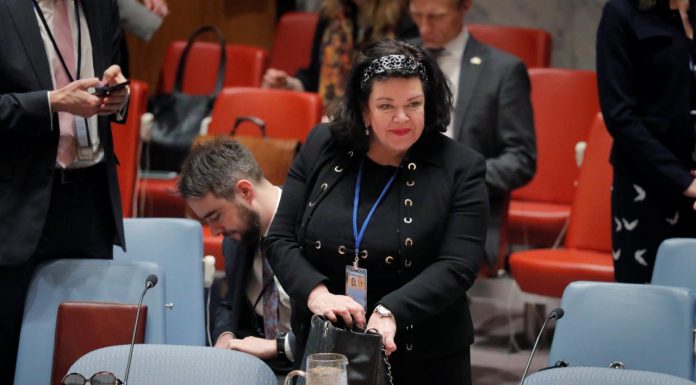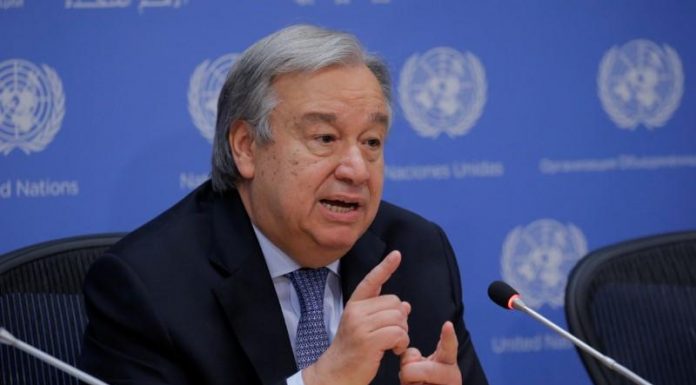By Michelle Nichols
UNITED NATIONS, Dec 4 (Reuters) – The United Nations Security Council met behind closed doors on Tuesday over a medium-range ballistic missile test by Iran that the United States, Britain and France said flouted U.N. restrictions on Tehran’s missile program.
However, there is no push for council action over the Dec. 1 launch as it would likely fail. Under a 2015 U.N. resolution, Iran is “called upon” to refrain from work on ballistic missiles designed to deliver nuclear weapons for up to eight years. Some states argue that the language does not make it obligatory.
“There is no legitimate reason why Iran should flout the resolution,” said Britain’s U.N. Ambassador Karen Pierce, who called for the council discussion on Tuesday along with her French counterpart Francois Delattre.
“If you wanted to demonstrate to the international community that you were a responsible member of it and you were genuinely interested in regional peace and security, these are not the sorts of missiles you would be test launching,” she said.
Most U.N. sanctions were lifted in 2016 under a deal Iran made with world powers to curb its nuclear program. But Iran is still subject to an arms embargo and other restrictions, which are not technically part of the nuclear agreement.
U.N. Secretary-General Antonio Guterres reports every six months to the Security Council on the implementation of the remaining sanctions and restrictions. He is due to submit his next report later this month.
Iran‘s U.N. mission said in a statement on Tuesday that Tehran was not in breach of the resolution and that its missiles were only designed to be capable of delivering conventional – not nuclear – warheads.
“Iran has never sought to acquire nuclear weapons and never will in the future,” the Iranian U.N. mission said.
Iran wants to increase the range of its missiles, a senior military official was quoted as saying earlier on Tuesday. Iran‘s military has cited 2,000 km (1,240 miles) as the current missile range.
The 2015 U.N. resolution also enshrines the nuclear deal, which U.S. President Donald Trump quit in May. He has reimposed sanctions on Tehran and criticized the deal for not including curbs on Iran‘s development of ballistic missiles or its support for proxies in Syria, Yemen, Lebanon and Iraq.
“Iran‘s recent ballistic missile test was dangerous and concerning, but not surprising,” U.S. Ambassador to the United Nations Nikki Haley said in a statement.
(Reporting by Michelle Nichols; editing by Grant McCool)



